Power boss asks Ukrainians to leave the country to ease burden on damaged energy network
People with somewhere else to go have been advised to leave ‘for three to four months’
Your support helps us to tell the story
From reproductive rights to climate change to Big Tech, The Independent is on the ground when the story is developing. Whether it's investigating the financials of Elon Musk's pro-Trump PAC or producing our latest documentary, 'The A Word', which shines a light on the American women fighting for reproductive rights, we know how important it is to parse out the facts from the messaging.
At such a critical moment in US history, we need reporters on the ground. Your donation allows us to keep sending journalists to speak to both sides of the story.
The Independent is trusted by Americans across the entire political spectrum. And unlike many other quality news outlets, we choose not to lock Americans out of our reporting and analysis with paywalls. We believe quality journalism should be available to everyone, paid for by those who can afford it.
Your support makes all the difference.Citizens of Ukraine have been advised to leave the country – if they can – to help reduce demand on the energy network.
Ukrainians should consider leaving for “three to four months” as it “will be very helpful to the system”, Maxim Timchenko, the head of Ukraine’s biggest private energy supplier, has said.
Almost half of the country’s energy system has been damaged by attacks launched by Russia since it started its invasion in February. The government has called on Ukrainians to limit their use of home appliances, such as ovens and washing machines, in a bid to conserve energy.
Mr Timchenko, chief executive of DTEK, told the BBC that the energy system becomes less reliable each time Russian troops launch missiles at the power infrastructure. Such attacks have increased since Russia suffered setbacks on the battlefield, such as Ukraine’s recapture of Kherson in the south of the country last week.
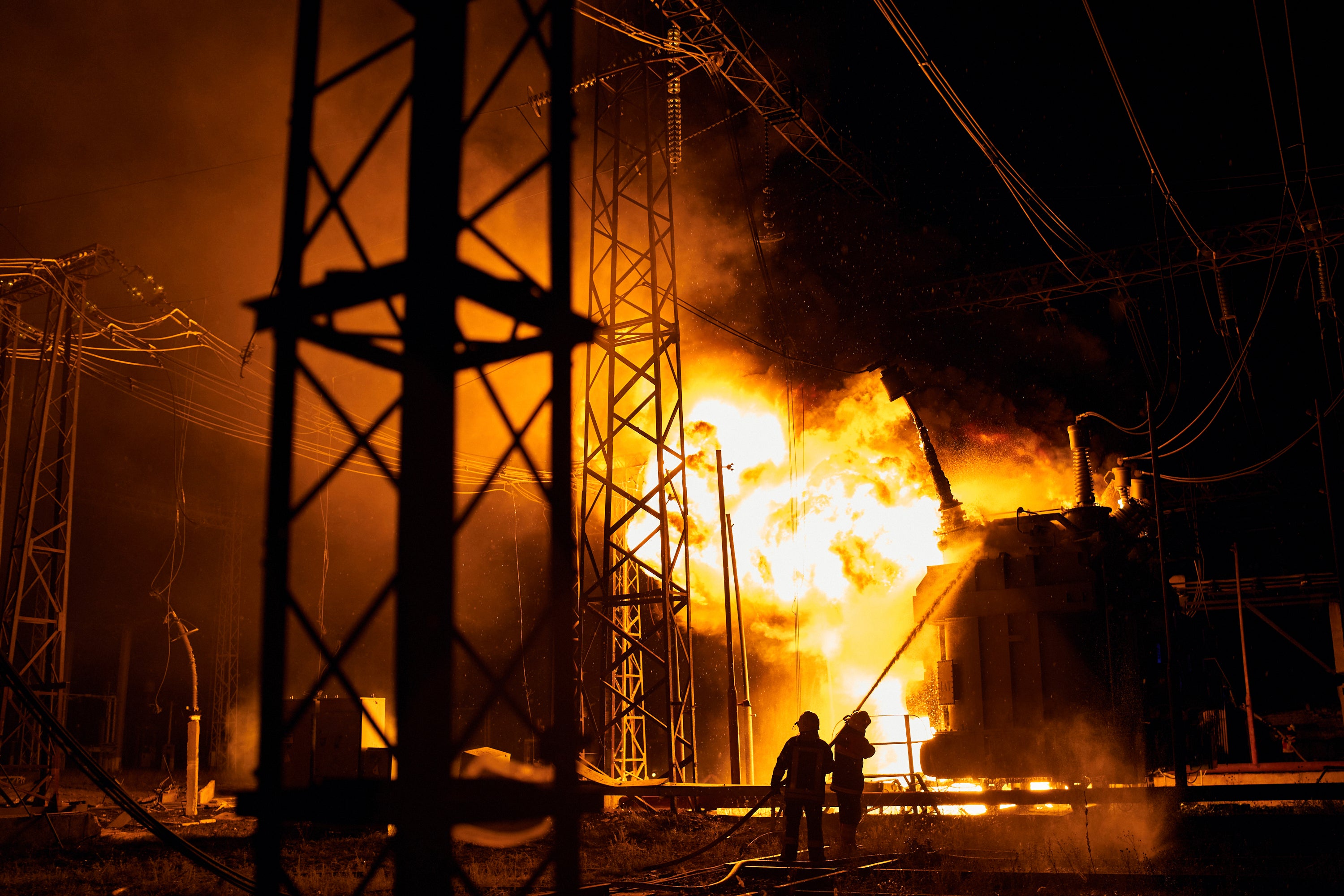
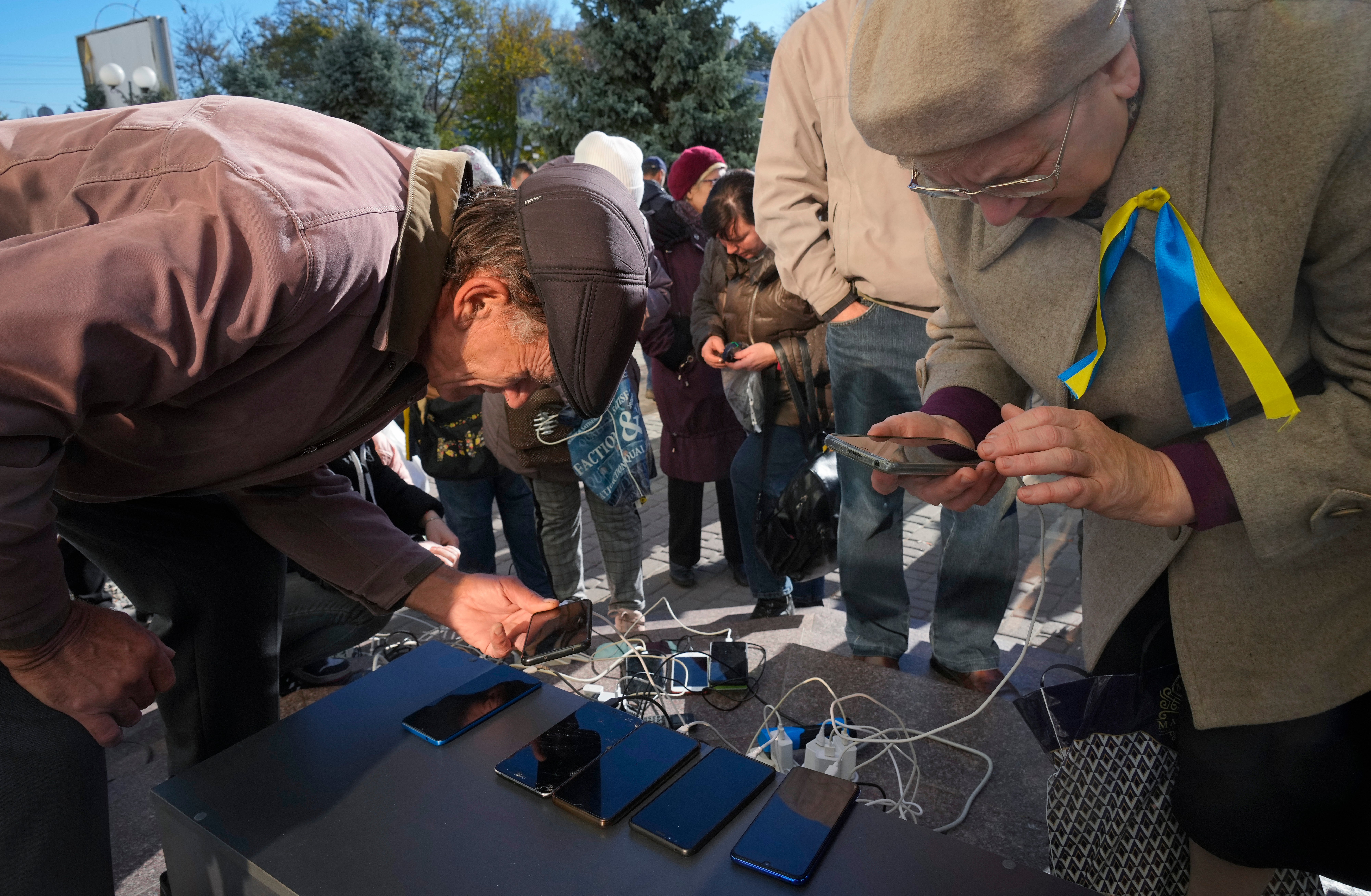
Since then, Russia has carried out more than 148 missile strikes on critical infrastructure, leaving approximately 10 million people without power, Ukrainian officials said.
Ukrainians have been left without power during both scheduled and unscheduled blackouts, while temperatures are dropping to below zero in some regions.
Mr Timchenko suggested that people reducing their energy use would help Ukraine win the war. He said: “If you consume less, then hospitals with injured soldiers will have guaranteed power supply. This is how it can be explained that, by consuming less or leaving, they also contribute to other people.”
Fixing the damaged infrastructure is also becoming more difficult as Ukraine has run out of equipment and spare parts. Mr Timchenko called on “partners, government officials, companies and equipment producers to help with the immediate supply of available equipment”.
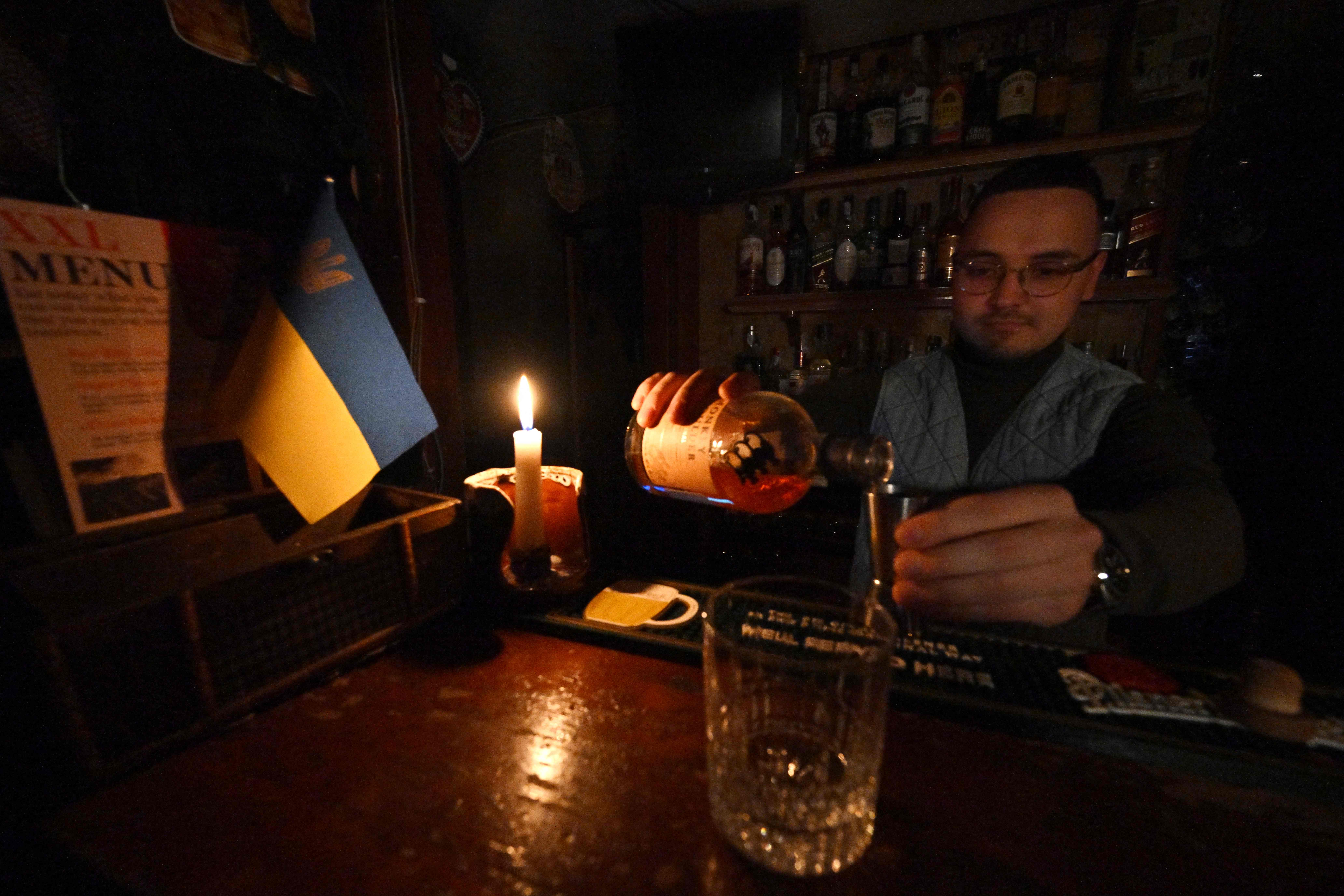
Meanwhile, Rishi Sunak has visited Ukraine to meet Volodymyr Zelensky, as he announced a new £50m package of air defence support for the country.
The visit is Mr Sunak’s first to Ukraine since he became prime minister less than a month ago. His predecessor Boris Johnson visited twice following the outbreak of war, and developed a friendship with the Ukrainian president.
Mr Sunak said: “We are today providing new air defence, including anti-aircraft guns, radar and anti-drone equipment, and stepping up humanitarian support for the cold, hard winter ahead. It is deeply humbling to be in Kyiv today, and to have the opportunity to meet those who are doing so much, and paying so high a price.”
During the visit, Mr Sunak also confirmed that the UK would contribute £12m towards the World Food Programme’s response in Ukraine, and £4m to the International Organisation for Migration.
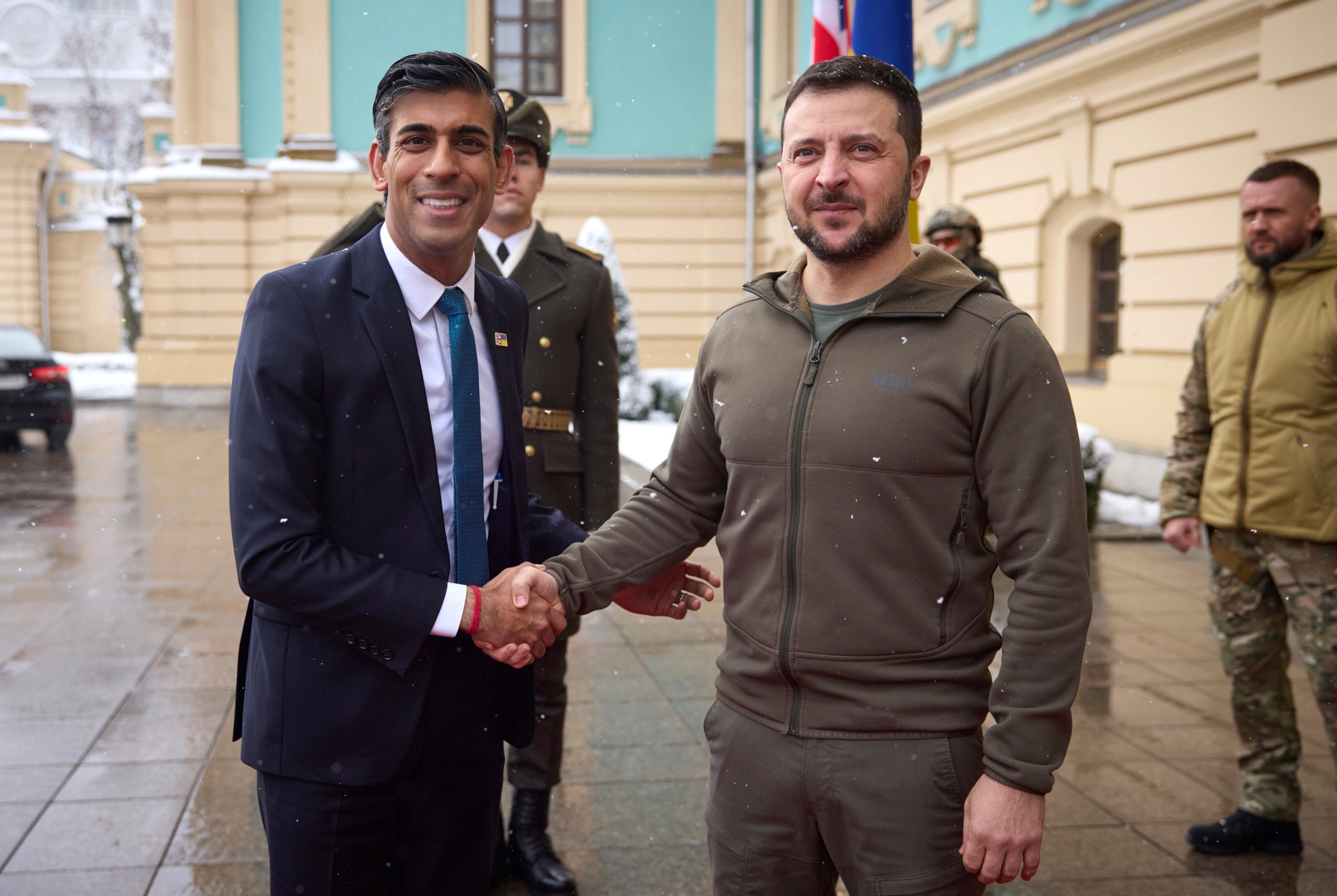
Downing Street said the funding would help provide generators, shelter, water repairs and mobile health clinics, with the UK also sending tens of thousands of extreme-cold winter kits for Ukrainian troops.
It follows the announcement by defence secretary Ben Wallace earlier this month that more than 1,000 new anti-air missiles would be provided to Ukraine. The UK is also planning to send army medics and engineers.
Mr Sunak’s visit comes after a missile hit a Polish village close to the Ukrainian border and killed two men in their sixties.
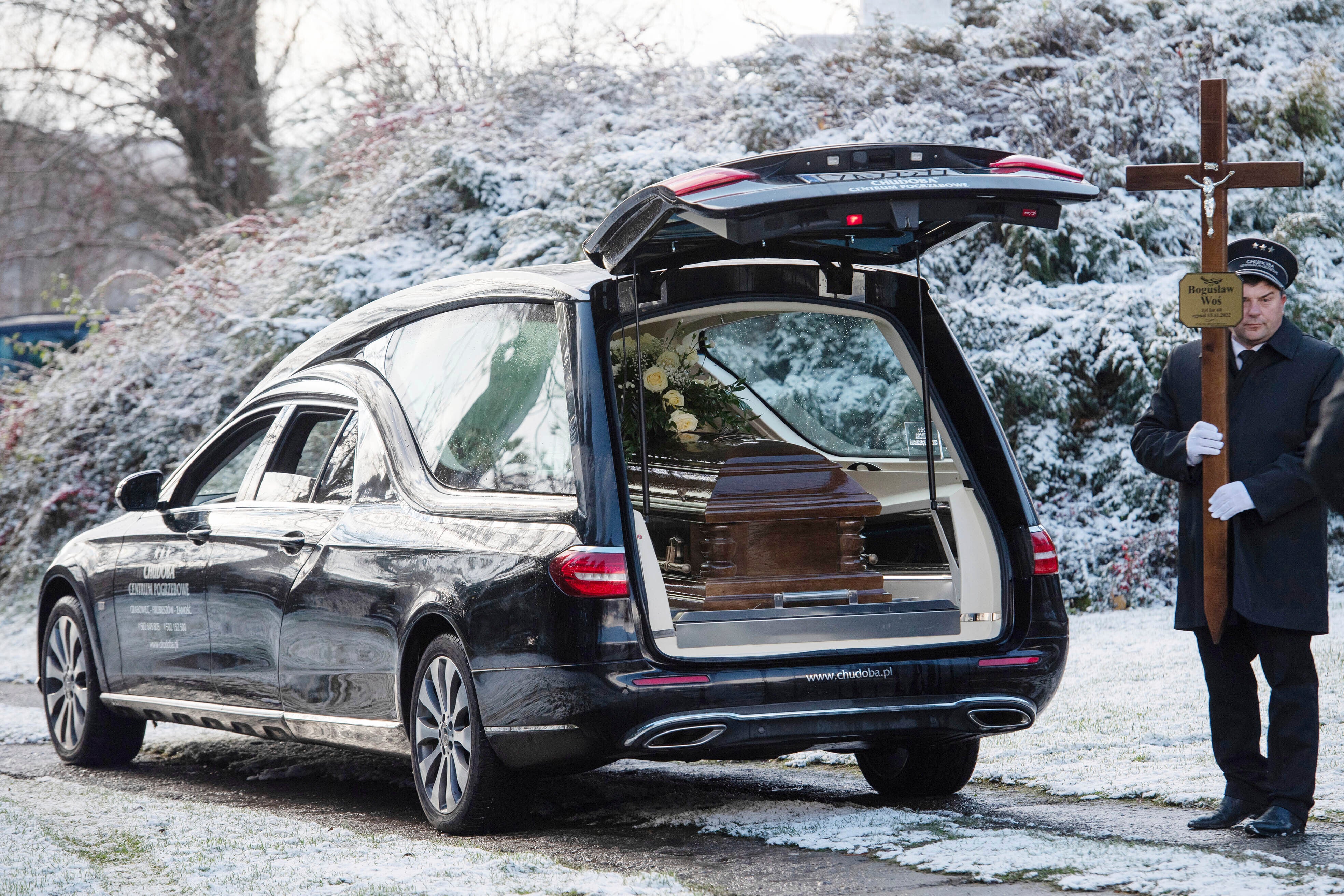
The missile strike had sparked concerns that either Russia or Ukraine had struck a Nato member state, potentially escalating the war.
Nato and the US suggested that the missile, which landed in the village of Przewodow on Tuesday, was launched by Ukraine in an effort to intercept a Russian projectile – a claim that Mr Zelensky has rejected.
But on Friday, Ukraine’s air force spokesperson Yuriy Ignat is reported to have said that so many missiles were fired by Russia and Ukraine that the missile fragments that struck the village in Poland could have been of either Russian or Ukrainian origin.




Join our commenting forum
Join thought-provoking conversations, follow other Independent readers and see their replies
Comments